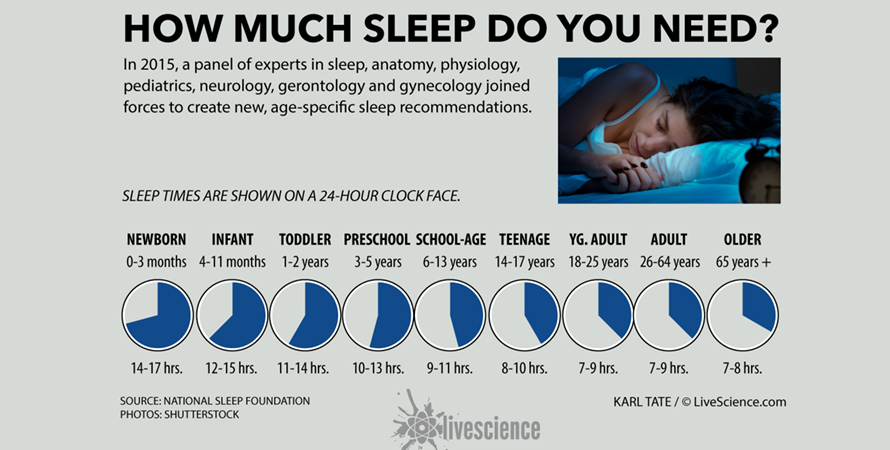Why Is Sleep Important? 7 Tips to Improve Sleep Quality

Sleep comes easy for many people, but for some, getting a night of good sleep can be extremely difficult. If you are one of the many individuals who find it hard to slumber and dream the night away, addressing your sleep issues is important to prevent further health problems.
Sleep is essential for maintaining optimum health. It impacts your physical being and mental state. The lack of sleep can directly compromise your ability to function productively, and with diminished energy during the day, it could lead to emotional imbalance, impaired judgment, and mood swings. Not having enough sleep can also take a toll on your appearance and weight – it can make you look older and unhealthy.
Why Is Sleep Important?
Do you recall the time when you’ve had just a few hours of sleep? The next day, you probably experienced being lightheaded, was unable to focus, and you felt tired the whole day. It is because your body has not achieved the recovery it needs while at rest. Sleep is integral for people to function normally and maintain health and well-being.
- Physical Well-Being – Sleep is the time when your body is resting – a moment for the body to rejuvenate. A restful sleep helps with the healing process, boosts your immune system, and improves your cardiovascular health. Sleep deprivation or an irregular sleeping pattern can affect your overall physical well-being and also cause serious illnesses, such as heart disease, diabetes, and other major health issues.
- Cognitive Performance – Restful sleep supports optimum brain functions. It helps maintain mental clarity, enables you to make sound judgments and recall information, and improves critical thinking. The lack of sleep impairs cognitive functions, which can negatively impact your performance in school, at work, or home.
You may find it troublesome to stay focused and alert, affecting your productivity. Irregular sleep patterns can also lead to slower reaction times, which could directly impair your driving ability and work. With good sleep, your thinking skills, creativity, and problem-solving skills will greatly improve. While you’re sleeping, the brain continues to do its job – to activate information and memory, strengthening the connections between brain cells. Sleep also helps you retain knowledge and recall useful information.
- Emotional Health – Sleep also impacts your emotions. Insufficient sleep can trigger mood swings, making you more irritable and affecting your coping mechanisms, which may lead to the development of more serious mood disorders, such as depression and anxiety.
Experts say that there is a link between sleep and emotions; people who have anxiety, often have trouble sleeping. Sleep deprivation could be one of the causes of depression or anxiety.
How Much Sleep Do We Need?

The average adult should get at least 7 hours of sleep every night. Unfortunately, in this digitally driven time, having 6 or 7 hours is sometimes impossible.
According to the National Sleep Foundation, the amount of sleep needed varies depending on the person’s age. Newborns and infants sleep most of the time, and they could have up to 19 hours a day.
Children between ages 1 and 5 need to sleep for about 11 to 15 hours. School age children from 6 years old to pre-teens should have 9 to 11 hours, while teens up to 17 years old need 8 to 10 hours. For young adults and older people up to 64 years old, they must have 7 to 9 hours of sleep, and the seniors 65 and above require 7 to 8.
These are just recommendations and adjusting by adding a few hours of sleep would be ideal, depending on your need. Observe and evaluate your daily performance, taking note of your total number of sleep hours.
Tips to Help You Sleep Better
If you find it difficult to get a night of good sleep, assess your habits and lifestyle activities during your waking hours. These can significantly affect your sleep, leaving you tossing and turning in bed, which may result in sleep deprivation. It is important to note that inadequate sleep will affect your mental and physical performance.
Whether you need to solve issues with your sleeping pattern or simply want to feel energetic, productive, and emotionally stable during the day, you can try to experiment with the following tips and consider which ones work best for you.
1. Condition Your Sleep-Wake Cycle
Synching with your body’s circadian rhythm is one of the best strategies for achieving better sleep. Keeping a regular sleep-wake schedule will make you feel energized and revitalized the next day.
Napping may seem appealing to you, but it can worsen your ability to catch a good night’s rest. If you feel the need to nap, limit it to only 15 to 20 minutes in the afternoon.
Practice sleeping and waking up at the same time every day to set your body’s internal clock while optimizing the quality of sleep. The moment you feel tired, your body is telling you that you need to rest. You will notice that you can naturally wake up without the need for an alarm clock and if you need to set an alarm, you should schedule your bedtime much earlier.
2. Incorporate Daily Physical Activities
Regular exercise will help you sleep better at night and provide you with more energy during the day. This will also facilitate an increased amount of time for restorative stages of deep sleep and relieve insomnia and sleep apnea.
Vigorous exercise or physical activities yield more powerful sleep benefits. As you develop a sustainable daily exercise regimen, you will notice the improvement in the quality of your sleep. Although it will take months before you will fully enjoy maximum benefits, starting with a light exercise like a ten-minute walk, will help. Be patient and stick to the plan.
3. Be Mindful of What You Eat and Drink
Never sleep on a full stomach or when you are hungry. Discomfort from not eating well or having a heavy meal a few hours before bedtime will affect the quality of your sleep. The same is true with alcohol, nicotine, caffeine, and sugary foods, which all have some stimulating effects that take hours to wear off. Avoid drinking too much water or fluids near bedtime.

4. Understanding Melatonin and Light Exposure
Did you know that we have a specific hormone that is controlled by light exposure? Melatonin is a natural hormone secreted in the brain that helps regulate our sleep-wake pattern. When you are exposed to light, the melatonin level becomes low, making you more alert and active. When it’s dark, it increases the production of this hormone, leaving you more relaxed.
Exposing yourself to bright early morning sunlight will help set your mood and make you more focused on the day ahead. You could have an al fresco breakfast and enjoy the warm sun. Letting some natural light in your workspace or home during the day is a good way to invite a pleasant and energetic disposition.
When nighttime falls or when your workday is about to end, switch environments to help increase melatonin production. Put away your devices or avoid watching TV for too long. Keep your bedroom dark and comfy. Slumber and enjoy your much-deserved sleep!
5. Set the Phase for A Good Night’s Sleep
Developing a relaxing routine before bedtime will help set the mood right. Avoid stressful conversations, online exposures, and work before going to bed. Taking a warm shower, reading a good book with dim light, and practicing meditation, be it through praying, breathing exercises, Zen type music, or relaxing yoga, are beneficial for a restful sleep.
6. Stress Management
Stress is a part of life, but if it affects your ability to sleep, consider managing it effectively. You may have worries about work or family but striking the right balance on how and when to deal with it, will help you get better sleep.
Acknowledging the things that stress you out and make you worry and solving them objectively are initial steps to managing stress. If you feel you need professional help, seek immediate assistance. Channeling your emotions is important.
7. Create a Conducive Sleep Environment
Your bedroom is your sanctuary, so you need to keep it neat, clean, and clutter-free. Reserve your bed for just sleep and sex. Treat your bedroom as a very special place because it is where you feel relaxed and secure. Keep it cool and quiet, and if possible, use a low light to make it cozy.

Final Thoughts
Falling asleep could be easy for many people and a problem for some. Keeping up with the day-to-day challenges in this techy generation can compromise sleep, which often results in brain fog, an inability to perform tasks effectively, and restlessness.
Fortunately, there are some natural ways to improve sleep quality. Understanding and evaluating your habits and routines will help you devise a solid plan that will meet your sleep requirements.
Also, start enjoying a restorative sleep by adopting lifestyle changes. Observing a good sleeping pattern will significantly improve your cognitive and physical health and immunity. Follow the tips mentioned above to ensure you get a restful sleep.







